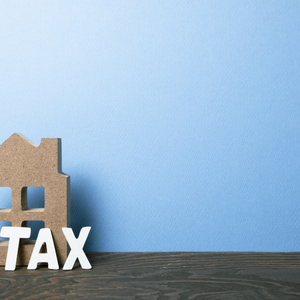
When selling a house, it’s easy to focus on the fun stuff like cleaning up and planning your move, but taxes can sneak up on you. From property taxes to capital gains and transfer taxes, here’s what you need to know about handling taxes when selling your Memphis home.
Tennessee Real Estate Tax Basics
Living in Tennessee gives you a significant advantage when selling your home. Yes, you read that right!
Unlike many states that take a bite of your profits, Tennessee doesn’t impose state income tax or capital gains tax on your home sale. This makes selling particularly appealing from a tax perspective.
The federal government still wants its share, though. The IRS applies capital gains tax to the difference between what you originally paid and your selling price. Your tax rate varies based on your income and how long you’ve owned your home.
Many Memphis homeowners qualify for substantial exclusions. Single filers get to enjoy $250,000. Meanwhile, married couples filing jointly get $500,000 exclusion, as long as you’ve lived in the home as your primary residence for at least two of the past five years.
Who Pays Taxes When Selling a House in Memphis, TN?

Who pays taxes when selling a house in Memphis, TN, is actually a flexible point of negotiation during a house sale. The current state of the market will determine who will pay in these discussions.
When Memphis homes sell fast with multiple offers, you’ll likely hold more power to ask buyers to handle certain tax expenses. Buyers often sweeten their offers by taking on more tax burdens to stand out from their competitors.
During market slowdowns, it’s the other way around. You might want to offer tax concessions to help your listing catch a buyer’s eye.
Property tax prorations frequently come up during negotiations. If you’ve already paid the full year’s property taxes but sell midway through, you might receive credit at closing for the unused portion. This gets calculated down to the day at the closing table.
Real estate professionals typically give you advice during these negotiations. They know which tax responsibilities Memphis sellers traditionally cover and which ones they don’t based on current market conditions.
When Do Property Taxes Come Due in Memphis?
Memphis property taxes follow a specific schedule that affects your home sale. This is set by the city council. Taxes become due on the third week of June each year and turn delinquent on August 31st. You’re responsible for taxes up until your closing date.
During closing, the title company calculates prorated taxes. The credits are split between you and the buyer based on your sale date.
Always check that your property taxes are current before listing. Unpaid taxes can create liens that can affect your sale plans. If you’ve fallen behind, a quick call to the Shelby County Trustee‘s office can help sort things out.
Required Tax Paperwork
When selling your Memphis home, you’ll need several tax-related documents:
- Property tax receipts showing you’re current on payments
- IRS Form 1099-S (filed by your closing agent to report the sale)
- Records of home improvements and their costs
- Closing disclosure/settlement statement
- Previous years’ tax returns, if you claimed home office deductions
- Receipts for qualifying moving expenses (for military personnel)
Important Note: Your tax obligations don’t end at closing. You must report your home sale on your federal tax return for that year. This usually happens on Schedule D of your Form 1040. The IRS requires you to report the sale even if you qualify for the capital gains exclusion and owe nothing
How Much Capital Gains Tax Will You Pay?
Your capital gains tax depends on several factors that directly impact your sale. Your income level is a big part of your tax rate. If your household falls into the 10% or 12% federal income bracket, you might qualify for a 0% capital gains rate.
In other words, you’d pay nothing on your profit. Most middle-income Memphis families face a 15% capital gains tax.
The calculation starts with your “basis,” or what you paid for your home, plus improvements you’ve made over the years. That bathroom renovation you did a few summers ago, and the new roof you put on after that big storm? These improvements increase your basis, which can lower your tax bill.
How to Calculate Your Memphis Home’s Basis
As mentioned, tracking home improvements pays off when selling your Memphis property. Remember that sweltering summer you spent upgrading your HVAC system or that time you added a deck? All these improvements potentially reduce your taxable gain.
Always keep receipts for major improvements like home additions, system upgrades, roof replacements, and substantial landscaping projects.
Regular maintenance like painting your living room or fixing leaky faucets doesn’t count toward your basis, so focus on the big stuff, especially if you’re planning to sell your home for cash in Arlington or nearby cities.
Transfer Taxes in Memphis Home Sales
When you sell your Memphis home, Tennessee collects a one-time transfer tax of about $0.37 per $100 of your property’s value. For a Memphis home at the median price, this adds several hundred dollars to the closing costs.
Who pays this tax often turns into a negotiation point, just like what we discussed previously. Tennessee law usually assigns this cost to the buyer, but local customs and market conditions frequently affect this responsibility.
During a seller’s market, when homes move quickly, buyers might willingly cover all transfer taxes to make their offer stand out. In slower markets, you might need to pay these costs yourself to attract buyers to your property, unless you choose to sell your home for cash in Memphis or nearby cities, which can simplify the process and reduce out-of-pocket expenses.
Tax Benefits for Memphis Home Sellers
Selling your Memphis home has potential tax perks that may significantly reduce what you owe.
The capital gains exclusion mentioned earlier saves many Memphis families thousands in taxes. This exclusion alone often wipes out tax liability completely for homes within the Memphis median price range.
Home Improvements That Reduce Your Tax Bill
The IRS allows you to add the cost of qualifying improvements to your home’s basis to reduce your taxable gain when selling:
- New roofing, siding, or windows
- HVAC system replacement
- Room additions or finishing basement/attic space
- Complete kitchen or bathroom renovations
- Large landscaping projects
- Energy efficiency upgrades
- Plumbing or electrical system changes
Pro Tip: Save receipts and documentation for these improvements. They directly offset potential capital gains. For you, this could mean the difference between owing tax and qualifying for a complete exclusion.
Tax Deductions When Selling Your Property
Beyond the capital gains exclusion, Memphis home sellers may also qualify for these tax benefits:
- Selling costs (real estate commissions, legal fees, advertising costs)
- Moving expenses for active-duty military personnel
- Property tax deductions for taxes paid during the year of sale
- Mortgage interest deductions for interest paid until closing
- Home office deduction recapture planning
- Capital improvements were made shortly before selling
Where Should You Get Tax Advice?
When selling your Memphis home, tax questions pop up constantly. Your real estate professional can explain who typically pays transfer taxes in Memphis and how property tax prorations work at closing. They might know capital gains exclusion basics, too. But they can’t legally provide specific tax advice about your situation.
For proper tax planning, talk to a tax professional before listing. CPAs and tax attorneys understand nuances that affect your specific circumstances, like home office deductions or investment property exchanges.
Their expertise is especially valuable with higher-value Memphis properties. That couple of hundred dollars spent on professional advice could save you thousands in surprise tax bills.
Selling an Inherited House in Memphis

Inherited Memphis properties come with a sweet tax perk: stepped-up basis. Your basis becomes the property’s fair market value when the previous owner died, not what they originally paid. This can wipe out capital gains tax entirely.
If your parent bought their Memphis bungalow for $50,000 decades ago and it was worth $200,000 when they passed, your basis jumps to $200,000. Sell for $220,000 and you only pay tax on that $20,000 difference.
Tennessee has no inheritance tax as of 2016, so you’ll dodge state-level estate taxes. Federal estate taxes might apply to high-value estates, but executors handle these before property transfers to heirs.
Note, though, you can’t claim the primary residence capital gains exclusion unless you’ve lived in the inherited home as your main residence for at least two years.
Why Consider Cash Buyers for Your Memphis Home?
Why cash buyers? Simple. We offer simplicity to your Memphis home sale while creating tax advantages, too. Cash deals typically close in 7-14 days versus the standard 30-45 days with mortgage buyers.
If you need to close by December 31st to claim capital gains in this tax year, cash buyers make that realistic. Similarly, if delaying until January benefits your tax situation, we can provide predictable timelines.
The paperwork is made simpler, too. There are fewer parties, which means easier documentation and fewer tax complications.
Many Memphis cash buyers purchase properties “as-is,” so you avoid repair negotiations that create additional tax record-keeping requirements. Without these repair contingencies, you’ll have less documentation to track for tax purposes.
How to Prepare for Tax Season After Selling
The best tip would be to start tax prep before listing your Memphis home. Gather improvement receipts, previous tax returns, and property tax records while packing for your move. These establish your home’s basis and support potential deductions.
At closing, grab an extra copy of your settlement statement. It itemizes all financial aspects of your sale. This is crucial for tax preparation. Your closing agent will file Form 1099-S with the IRS reporting your sale.
After selling, mark your calendar with tax deadlines. Even with the capital gains exclusion, you must report your home sale. If you owe capital gains tax, you might need to make estimated tax payments rather than waiting until filing season.
Consider working with a tax pro the year after your sale, even if you normally DIY your taxes. Home sales create tax situations that most people encounter rarely.
Of course, expert guidance will help you ensure you claim all available deductions while properly reporting your Memphis home sale.
Frequently Asked Questions About Memphis Home Sale Taxes
What happens if I sell my Memphis home for less than I paid for it?
If you sell your Memphis home at a loss, you’re dealing with a capital loss rather than a capital gain. Unfortunately, the IRS doesn’t let you deduct losses on personal residences.
However, if your Memphis property was a rental or investment property, you might be able to deduct the loss. This gets complicated fast, so it’s better to talk with a tax professional.
How do divorce settlements affect taxes when selling a Memphis home?
Divorce makes home sale taxes more complicated. If you receive the house in a divorce settlement and later sell it, you can count your ex-spouse’s ownership years toward the two-year residency requirement for capital gains exclusion.
Even if you’ve only lived in the home for one year post-divorce, your ex’s time in the house might help you qualify for the full exclusion. The IRS offers additional tax breaks for some divorce-related home sales, so consult a tax pro who specializes in divorce situations.
What if I’ve converted part of my Memphis home into a short-term rental?
That spare bedroom you’ve been renting on Airbnb or VRBO also complicates your taxes when selling. The portion of your home used for business doesn’t qualify for the capital gains exclusion. You’ll need to allocate the profit between personal use (which might qualify for the exclusion) and business use (which doesn’t).
That means you need to keep detailed records showing what percentage of your home was used for rental purposes and for how long.
Can I avoid capital gains tax by using the proceeds to buy another home?
The old “rollover rule” that let you postpone capital gains tax by buying a more expensive home disappeared back in 1997. Today, the only way to avoid capital gains tax when selling your primary residence is through the $250,000/$500,000 exclusion.
However, if your Memphis property is an investment property, you might qualify for a 1031 exchange. This means you can defer (not remove) capital gains tax by purchasing a similar investment property. Note, though, that 1031 exchanges come with strict timelines and rules.
How do medical-related home sales affect my taxes?

If you need to sell your Memphis home because of health issues but haven’t lived there for the full two years needed for capital gains exclusion, you might still qualify for a partial exclusion.
The IRS offers breaks if you’re selling due to a change in health, a job relocation, or certain unforeseen circumstances. For health-related moves, you’ll need documentation showing the medical treatment or care. This exception can save substantial tax dollars when health challenges force an early sale.
What tax implications should I know about if I’m selling a Memphis home with solar panels?
Those solar panels on your roof also create unique tax considerations. If you purchased the panels outright, their value is typically included in your home’s basis. This means they can help reduce your capital gains.
If you leased the panels, you’ll usually need to either buy out the lease before selling or transfer the lease to the new buyer. Any remaining solar tax credits may transfer to your buyer and can become a selling point, especially when working with a buyer like buyerhouse who understands how to navigate solar agreements during a home sale.
Key Takeaways: Who Pays Taxes When Selling a House in Memphis, Tennessee
When dealing with taxes during your home sale in Tennessee, your basis matters a lot. Those kitchen renovations, roof replacements, and bathroom remodels you’ve documented over the years can reduce potential capital gains. Meanwhile, property taxes, transfer fees, and closing costs all have tax implications you should address before listing.
Now, why stress about complicated tax implications? If you’re looking to sell your Memphis home without the tax headaches, buyerhouse offers fair cash offers with simplified closing processes. Get your no-obligation quote today and skip the tax headaches altogether! Contact us at (901) 979-9929 or fill out the form below!
Helpful Memphis Blog Articles
- Selling An Inherited House In Memphis, TN
- Sell A House With A Lien In Memphis, TN
- Sell A House With A Mortgage In Memphis, TN
- Who Covers Hoa Fees At Closing In Memphis, TN
- The Impact Of Unpaid HOA Dues On Memphis, TN
- Legally Sell Your Share Of A Home In Memphis, TN
- Sell Your Home Below Market Value in Memphis, TN
- Selling To Developers In Memphis, TN
- How To Sell A House With Asbestos In Memphis, Tn
- Who Pays Taxes When Selling a House in Memphis, TN?
- Checklist for Selling A House in Memphis TN

| PROPERTIES | STATE OF TENNESSEE | MARKET PRICE | FAIR MARKET VALUES | COMPARATIVE MARKET ANALYSIS | REAL ESTATE AGENTS |
| CHILDREN | CHILD | EQUITY | CAPITAL GAINS | REMODEL | REMODELING |
| CAPITAL GAINS TAXES | CAPITAL GAINS TAX | VALUATION | APPRAISED | APPRAISAL | TAX LAW |
| MONEY | INFORMATION | INSPECTION | LENDER | ADVERTISERS | RISK |
| GIFT TAXES | APPRAISERS | TITLE INSURANCE | TITLE COMPANIES | TITLE COMPANY | TAX ATTORNEY |
| EXEMPTION | MARKET ANALYSIS | LENDING | LOANS | DOWNPAYMENT | DOWN PAYMENT |
| CREDIT | COMPANY | PAYMENT | LIABILITIES | LIABILITY | HOMEOWNERS ASSOCIATION |
| HOA | ESCROW | CPA | CERTIFIED PUBLIC ACCOUNTANT (CPA) | BANK | TRANSFER TAX |
| HOMEBUYER | NEGOTIATIONS | NEGOTIATING | KITCHEN | INTEREST | INSURANCE |
| HOME INSPECTION | HOME INSPECTOR | FRAUD | FAIR CASH DEAL | CONTRACT | |
| BROKERAGE | BROKER | ATTORNEY FEES | VALUATIONS | AMERICA | U.S. |
| TABLE OF CONTENTS | NOTHING | THE NATIONAL ASSOCIATION OF REALTORS | NAR | MATTER | MARKETING |
| FINANCE | EMPLOYEE | EMPLOYER | DESCRIPTION | CREDIT SCORE |
